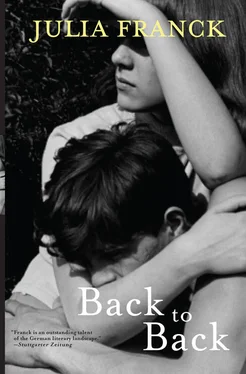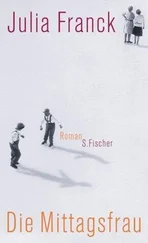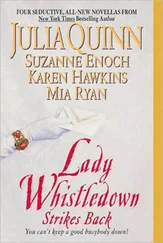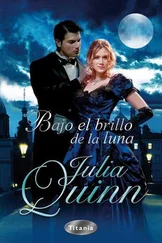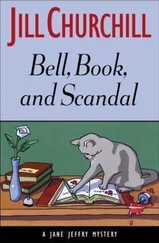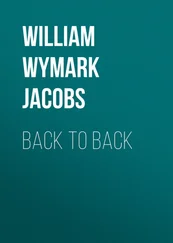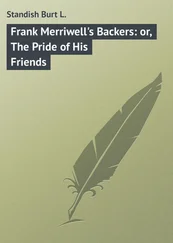I can do the rest by myself, said Ella. She stood in front of the open drawer and put the old water-level that it contained on one side, the wooden partition on the other. How large had the separate compartments been? She bent down and picked up tubes of paint, pens, brushes, chalks. Most of the chalks had split, like the charcoal. However, they had probably been split already, Ella told herself as she picked up the pencils and the pencil leads lying about broken into many pieces. The caster was still tying his shoelaces. What was the matter with him, couldn’t he tie a bow? Was Ella expected to help him? The journeyman bent down to collect the crayons that had rolled under the workbench and over to the door into the yard, and handed them to Ella, who put them in one or the other compartment of the drawer, depending on what kind and what colour they were. There wasn’t a purple one. Ella put a magenta one that would have been better for fuchsias on the cupboard, along with the watercolours she had chosen, and added a bright violet. Why no aquilegia? A magnolia the colour of fuchsias and aquilegias. Out of the corner of her eyes, she saw the caster standing up.
The journeyman had noticed it too. Let’s go, master, he said, coffee time will soon be over.
(May 1962)
A grisly sound cries out in the night
A tooth grates on deep sand;
I climb from my grave –
And the vapours it gave –
With bloodstained rags on foot and hand,
And laughed as a madman might.
The stench rises to the tall tree,
Green leaves rot and fall.
Waxen hair blows in the wind wild,
With crunching teeth I eat a child,
Closing my lips, consuming it all,
I see pus and foam dripping down.
A cry for help sounds in the sun –
What I am there is not me!
Eating a child
Pissing on the undefiled,
What I see there is not me.
It’s the death of all, and has just begun.
Oppressive heat, the air flickering above the tramlines. Thomas was leaning against a lamp post, waiting for Marie. They had been working the early shift, and the afternoon was free. Thomas knew where Marie and her husband lived. But she had not let him take her home. In no circumstances was Thomas to be seen in Samariterstrasse, not by the neighbours or anyone else. No one was to tell her husband that she had been seen with the young man. Marie had told him to wait while she went home, packed bathing towels and fetched her little girl from the crèche at the end of the road, and then she and the child would come to the Frankfurter Tor underground station. The bathing beach by the Müggelsee would be overcrowded. Thomas wanted to show her the marshland, the little bay. No one would come upon them there, not Marie’s mother-in-law or her husband’s colleagues, and the husband himself was at work until six. Tuesday was the evening when he went drinking with his friends, and he wouldn’t be home before ten. Thomas felt uneasy; he still couldn’t think of Marie as a mother, his hands were sweating. A July day lay before them. Thomas watched the traffic; every few minutes a small column of cars came eastward here from Alexanderplatz, stopped at the traffic lights on the roundabout and clattered on. There was a smell of petrol. Thomas felt hungry. He went into the little greengrocer’s shop and bought a bunch of radishes and a bag of dried plums. There were no apples yet. He licked the stone of a sweet plum and looked at the time. Shouldn’t Marie have been back by now? He leaned against the lamp post again.
That morning, a young man in Room 1 had died; he hadn’t come round from an operation on his pancreas. He died while Thomas was tending his wound, without warning and without holding the hand of the wife he had married only a few months earlier, who had been visiting him at the hospital morning and evening. Thomas felt his life ebbing as he put fresh gauze on the wound. It was as if he felt the shadow of death even before he heard the breath drawn that was, although he didn’t know it, the patient’s last. He looked up and saw the man’s yellowish face, the eyes that had been looking at him just now had rolled aside, as if by chance. Thomas dropped the gauze, he had seized the man’s arm, crying out: Breathe!
The plum stone stuck to his gums. How much longer would Marie need? A brand-new Trabant stopped beside him, its engine chugging, pale vapour enveloping the vehicle like a cloud, and also enveloping Thomas and cutting off his view.
The men in the neighbouring beds had sat up, curious. They wanted to know what had happened. Thomas felt hot and cold by turns. Tears poured from his eyes. One of the patients made his way, with difficulty, out of bed and rang the bell for help. The bright white of the sheet hit Thomas in the eye, his retina hurt, his ears, everything about him felt sore. Never before had he felt such a strong sensation of misery. Lips now dry and cracked / once were fierce with lust / The mouth, a black sultry cavern / can’t even say Mother now. A nurse appeared and looked at him enquiringly. Should he smile, explain something that he couldn’t explain? Even his own helplessness, and this was not the first time he had felt it, seemed to him small and ridiculous in the face of the general helplessness and immense misery of the world. Let go of him, the nurse had told him with unusual emphasis; apparently she had had to repeat the remark several times, since Thomas had not done as she said. He had tried to open his hands, but they were stiff, it had been difficult for him to let go of the dead man. He felt humbled by nature, dismayed by mankind. Would the man have died if the operation had not been carried out? What was a body worth to scientific knowledge, what was experimental medicine worth, what was it worth to the man? Was he not, in the guise of curiosity, of bringing aid, of a better world, both discoverer and researcher, both a hypocrite and a destroyer? Never mind whether the name was Rutherford, Hahn, Meitner, Strassmann, or then again Mengele, Truman, Thomas. Who could tell a good intention from a bad one? Thomas felt queasy.
The engine of the Trabant flooded. Two men got out to remove something from the boot. Thomas must have been waiting for half an hour. The sun was hot, the black plums smelled almost alcoholic. In the distance Thomas saw two women in button-through dresses wheeling a large handcart full of children along. Thomas spat the plum stone out as far as he could; it landed in the tramline rails.
Man, in his hubris, thought that he could defy nature, domesticate it, that he was not just the slave of his curiosity, of his intentions, the moral value of which Thomas found it impossible to estimate. He bore the responsibility, whether he acted or was silent, whether he killed or died. Playing God, Michael had once said, meant ignoring all that. Thomas couldn’t do it, he was repelled by the jaunty gait of the surgeon with his stethoscope dangling on his chest like an order. Subduing the elements, splitting the atom, removing a thyroid here, part of a liver there, listening to hearts, and that was that, and what could you really ever expect to control? All that lives must die — passing through nature to eternity — from Shakespeare’s standpoint that might have been true. But recently mankind had set about eradicating things. Nature, eternity, perhaps life itself. It seemed to Thomas uncertain whether you could still think in harmony with nature and mean what Shakespeare made Queen Gertrude say. Wasn’t suicide, to Shakespeare, the opportunity to speed up a life played out in every spectrum?
The sun sparkled on the shining paint of the Trabant, dazzling Thomas. He was thirsty; the plums were sticking to each other in their bag. He hoped Marie would bring something to drink when she finally arrived. Thomas looked in all directions; perhaps the children at the crèche were on an outing, so Marie had to wait. He felt in his trouser pocket, but he had no cigarettes left. He had smoked them all that morning after the man died.
Читать дальше
